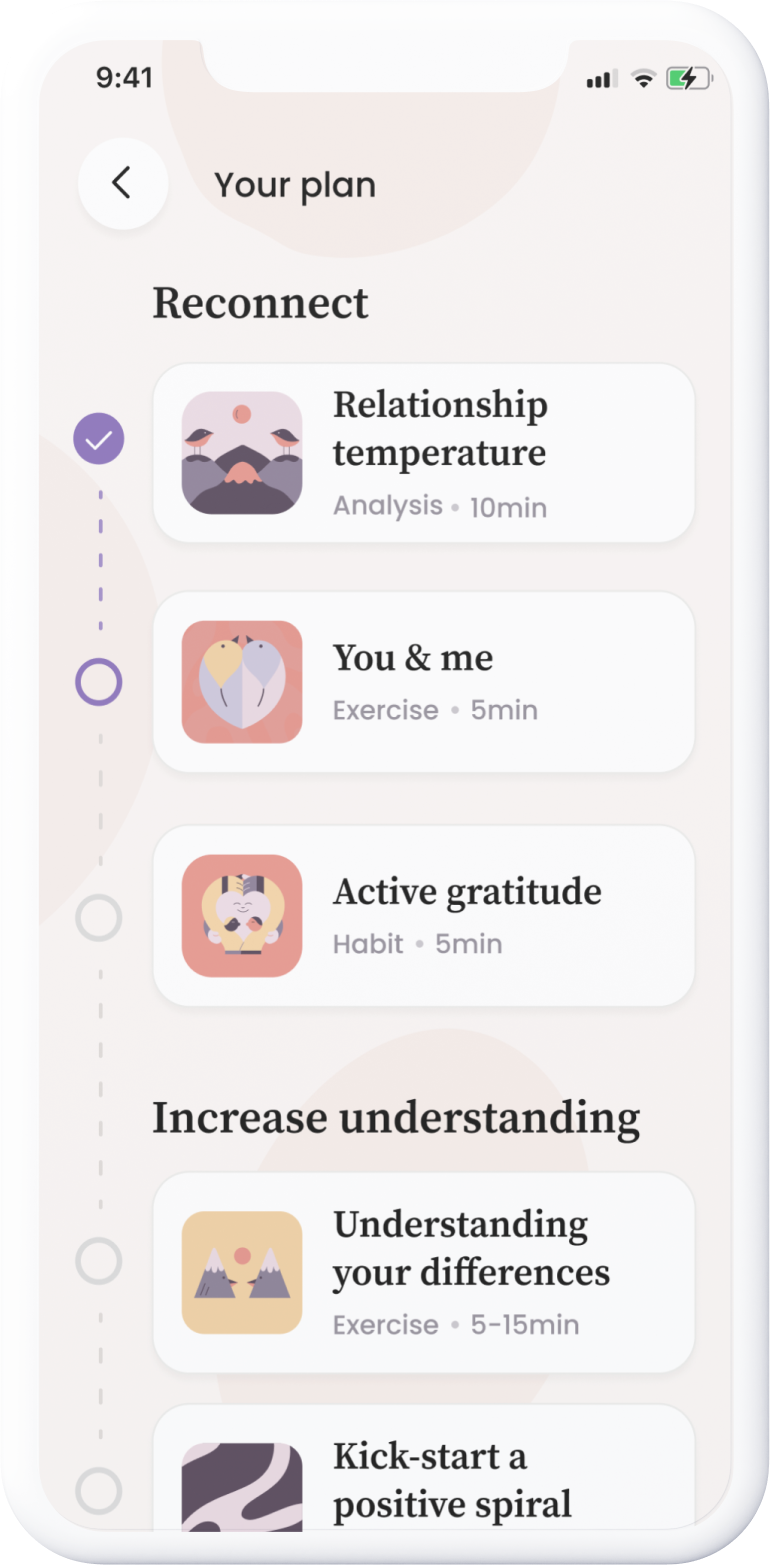Communication exercises for couples
Elevate Your Relationship with Marriage Communication Exercises and Relationship Communication Exercises- 7 December 2023
- 4min

Effective communication plays a vital role in fostering a healthy and thriving partnership. In this blog post, we'll explore key marriage communication exercises, relationship communication exercises, and communication skills for couples exercises to understand each other better and deepen your emotional connection.
1. Reflective Listening Exercise
Effective communication begins with active listening. Set aside dedicated time to engage in reflective listening with your partner. Choose a topic to discuss, and take turns sharing your thoughts and feelings.
The listener's role is to reflect back what they've heard without judgment, criticism, or interjecting their own perspective. This exercise promotes understanding and validates each other's experiences.
2. "I" Statements Practice
Replace accusatory "you" statements with assertive "I" statements to express your feelings and needs without placing blame. For instance, instead of saying, "You never listen to me," try expressing, "I feel unheard when I sense that my thoughts are not acknowledged."
This subtle shift encourages open communication by fostering an environment where both partners feel safe expressing themselves without fear of criticism.
3. Weekly Relationship Check-In
Set aside dedicated time each week for a relationship check-in. Choose a good time when you can fully focus on each other. Ask each other how things are right now. Describe how you're feeling and why. Reflect on the highs and lows of the week, addressing any concerns or challenges that may have arisen.
This regular practice ensures that small issues don't snowball into larger problems and promotes ongoing communication about the state of your relationship.
4. Daily Appreciation Ritual
Take a moment each day to express appreciation for your partner. For example: share something you admire or are grateful for or say "thank you" for something your partner did.
This simple practice can significantly impact the overall tone of your connection, helping both partners feel valued and loved.
5. Emotionally-Focused Conversations
Explore your emotions and deeper feelings with your partner through emotionally-focused conversations. Discuss your vulnerabilities, fears, and desires, allowing for a more profound understanding of each other's inner worlds.
This exercise helps build emotional intimacy. When you understand why your partner feels the way they do, and grasp the emotions on a deeper level, it becomes easier to feel and express empathy.
6. Time-Out Technique
In the heat of an argument, it's crucial to recognize when emotions are escalating. Agree on a signal or phrase that indicates the need for a time-out. Take a step back, allowing both partners to cool off and collect their thoughts. This exercise prevents communication breakdowns and encourages a more constructive resolution to conflicts.
7. Dream about the future together
Imagine a point in time a little further ahead when things are exactly as you desire in your relationship and life. To take it a step further you can even create a relationship vision board together.
This representation of your shared goals and dreams serves as a reminder of your collective journey. Discuss your aspirations, both as individuals and as a couple, fostering a sense of unity and shared purpose.








